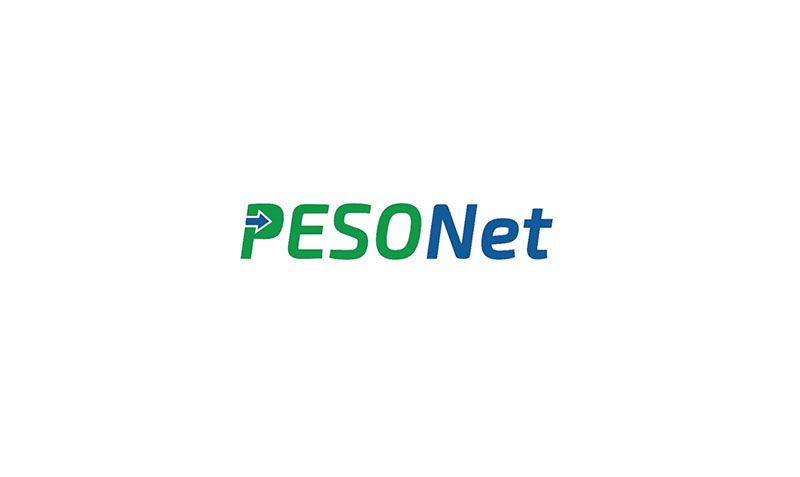PESONet now has 60 financial institution participants
PESONet, the batch electronic funds transfer facility introduced last November 2017 with 33 participating financial institutions, had a remarkably successful year and is looking at posting even more significant growth for the coming year.
PESONet is a multilateral automated clearing house (ACH) established for Filipinos to enjoy convenient, safe and affordable same-day funds transfer from and to any participating financial institution, thus offering a superior alternative to checks. The other ACH is InstaPay, a real-time, low-value instant fund transfer service available on a 24/7 basis.
More and more financial institutions are joining PESONet as businesses and individuals are increasingly taking advantage of the service. As of October 2018, more than 60 financial institutions have already signed up with PESONet, 46 of them currently receiving PESONet transactions. As of end October 2018, PESONet has processed over 5.3 million transactions worth Php737 billion with usage growing by 115% in volume and 46% in value since its launch, or monthly by 7.2% and 3.5% in volume and value, respectively.
The BSP recognizes the accomplishments to date and is confident that the country will soon be able to realize a robust and dynamic digital payments ecosystem through education and consistent positive user experience. The BSP works closely with the Philippine Payments Management Inc. in digitalizing financial and payment services.
Closing its first year with a bang, PESONet now welcomes PayMaya Philippines as the first non-bank electronic money issuer (EMI-Others) to offer the service. Licensed by the BSP, PayMaya Philippines offers a prepaid payment wallet app and service that enables its customers to shop online, pay bills, buy mobile phone load, and send money. It is also the digital payments arm of Voyager Innovations, the technology firm in the country backed by investment firm KKR, Tencent and telecoms carrier PLDT.
“PayMaya has always worked to help create a safe, convenient and seamless payments ecosystem for retail consumers and businesses. Under PESONet, funds transfer for business-to-business (B2B) and customer-to-business (C2B) transactions are now more convenient as it allows transfer of funds from PayMaya accounts to other accounts in other banks within the same banking day,” says PayMaya Philippines’ Chief Operating Officer and Managing Director Paolo Azzola.
“As an EMI, our enterprise partners can now make disbursements to multiple recipient accounts in other financial institutions. As a merchant acquirer, our merchants can receive their settlement funds for all our available payment methods in their selected PESONet-member bank,” Mr. Azzola adds.
With PayMaya’s PESONet-enabled services, any PayMaya enterprise and merchant partners are assured of more efficient cash flow management and lower operating costs, with no need to maintain multiple accounts in several banks in moving money around. Fees are also competitively structured with other industry players based on the National Retail Payment System (NRPS) pricing principles. “Everything is in line with our vision of ‘digital financial services for all,’ driving stronger cashless ecosystems, enhanced transparency, and security. Even our home-grown suite of financial services would be well complemented by being part of PESONet.”
As a digital payments firm, PayMaya’s goal is to enable consumers and merchants to move towards a cash-lite economy, where everyone can have a financial account through the PayMaya wallet so it’s more convenient to add money or withdraw funds through its 22,000 touchpoints (mostly non-bank channels). Mr. Azzola also expressed thanks to the PESONet team for being very supportive during the integration process that was completed in only five months, or four weeks ahead of schedule, and helping PayMaya overcome the challenges, being the only non-bank financial institution in the network.
Mr. Azzola said PayMaya’s PESONet-enabled services will initially be offered to enterprise partners and select merchants, with plans to extend this to all partners after the pilot program.
“The BSP will not cease espousing an enabling policy and regulatory environment so the industry can continue to develop payment products and services that would best suit the needs of consumers without sacrificing the safety and reliability of the payment system,” says BSP Deputy Governor Chuchi Fonacier.
She said all these initiatives “are geared towards a more efficient, safe, and reliable payment system that supports economic growth and enhances the country’s competitiveness.”
The launch of PESONet provided the platform for the public to do financial transactions such as paying for products and services without leaving their office or homes or spend money on transport fares. All they need is any digital device (laptop, smartphone, tablet), a few clicks, wait a few seconds, and they’re done. With PESONet, the government is eyeing a 20-percent rise in total electronic payment transactions by year 2020.
Currently, there are 24 financial institutions that have PESONet-enabled services on their internet banking facility while nine have it on their mobile channels.
Just this year, the BSP also introduced “InstaPay,” another ACH under the NRPS framework. While PESONet involves volume/bulk financial transactions, InstaPay is limited to sending and receiving funds of up to P50,000 through InstaPay-enabled channels. Transactions are done real time 24/7 with lower or zero transaction fees.
For organizations looking for ways to reduce cash management costs and/or improve operational efficiency in disbursements and collections, visit PESONet participating financial institutions’ websites, www.pesonet.info or www.bsp.gov.ph. ADVT
